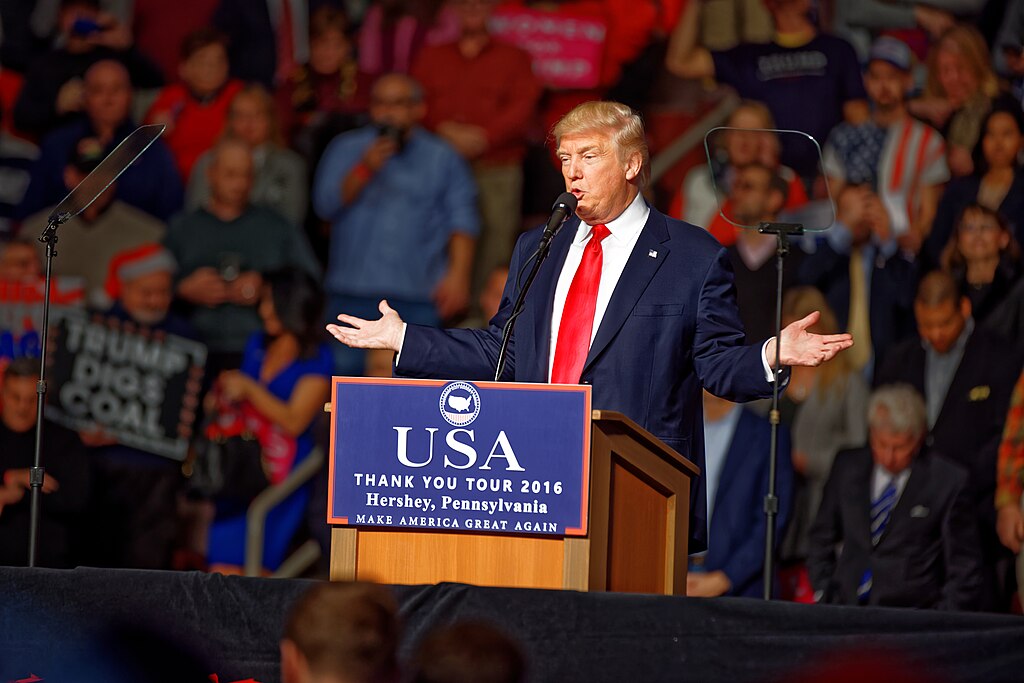Attorneys representing President-elect Donald Trump have filed a motion seeking the immediate dismissal of his conviction in the Manhattan business records case, asserting that the U.S. Constitution mandates such action. This development follows Trump's recent election victory and raises significant legal questions regarding presidential immunity and the separation of powers.
Background of the Case
In May 2024, a Manhattan jury convicted Trump on 34 felony counts of falsifying business records related to hush-money payments made during the 2016 presidential campaign. The charges centered on allegations that Trump orchestrated payments to suppress information that could have adversely affected his electoral prospects.
Legal Arguments for Dismissal
Trump's legal team argues that proceeding with sentencing or any further legal action would violate constitutional principles, particularly in light of his status as president-elect. They contend that the Constitution provides immunity to a sitting president from criminal prosecution, and by extension, this protection should apply to a president-elect to ensure the unimpeded transition of executive power.
In their motion, the attorneys state, "Any disruption occasioned by the transfer of the executive power could produce results detrimental to the safety and well-being of the United States and its people."
Prosecutors' Response
The Manhattan District Attorney's office, led by Alvin Bragg, opposes the motion to dismiss but has suggested pausing proceedings until after Trump's upcoming presidential term. This approach aims to balance the enforcement of the law with respect for the constitutional role of the presidency.
Public Reaction
The motion has sparked a range of reactions on social media:
-
@LegalEagle2024: "Trump's legal team is right; the Constitution must be upheld to protect the presidency."
-
@JusticeForAll: "No one is above the law, not even a president-elect. This motion sets a dangerous precedent."
-
@CivicObserver: "The courts must carefully consider the constitutional implications of this case. It's a complex issue."
Implications for Presidential Immunity
This case brings to the forefront the debate over the extent of presidential immunity. While the Supreme Court has ruled that a sitting president has certain immunities, the application of these protections to a president-elect remains uncharted legal territory. The outcome of this motion could have lasting implications for the interpretation of executive power and accountability.
Conclusion
As the legal proceedings continue, the intersection of constitutional law and the prosecution of a president-elect presents a complex challenge for the judiciary. The decision on this motion will not only impact Trump's immediate legal standing but also set a precedent for how similar cases may be handled in the future.



 Israel Prepares Weeks-Long Military Campaign Against Iran Amid Escalating Air Strikes
Israel Prepares Weeks-Long Military Campaign Against Iran Amid Escalating Air Strikes  Melania Trump Chairs Historic U.N. Security Council Meeting on Children Amid Iran Conflict
Melania Trump Chairs Historic U.N. Security Council Meeting on Children Amid Iran Conflict  Trump to Attend White House Correspondents’ Dinner 2026, Ending Long Boycott
Trump to Attend White House Correspondents’ Dinner 2026, Ending Long Boycott  Suspected Drone Strike Hits RAF Akrotiri Base in Cyprus, Causing Limited Damage
Suspected Drone Strike Hits RAF Akrotiri Base in Cyprus, Causing Limited Damage  Failure of US-Iran talks was all-too predictable – but Trump could still have stuck with diplomacy over strikes
Failure of US-Iran talks was all-too predictable – but Trump could still have stuck with diplomacy over strikes  Zelenskiy Urges Change in Iran After U.S. and Israeli Strikes, Cites Drone Support for Russia
Zelenskiy Urges Change in Iran After U.S. and Israeli Strikes, Cites Drone Support for Russia  Supreme Court Backs GOP Lawmaker in New York Redistricting Fight Ahead of Midterms
Supreme Court Backs GOP Lawmaker in New York Redistricting Fight Ahead of Midterms  Pentagon Downplays ‘Endless War’ Fears After U.S. Strikes on Iran Escalate Conflict
Pentagon Downplays ‘Endless War’ Fears After U.S. Strikes on Iran Escalate Conflict  EU Urges Maximum Restraint in Iran Conflict Amid Fears of Regional Escalation and Oil Supply Disruption
EU Urges Maximum Restraint in Iran Conflict Amid Fears of Regional Escalation and Oil Supply Disruption  Trump Says U.S. Attacks on Iran Will Continue, Warns of More American Casualties
Trump Says U.S. Attacks on Iran Will Continue, Warns of More American Casualties  U.S. Military Strikes on Iran Complicate Xi-Trump Summit and Expose China’s Energy Risks
U.S. Military Strikes on Iran Complicate Xi-Trump Summit and Expose China’s Energy Risks  Why did Iran bomb Dubai? A Middle East expert explains the regional alliances at play
Why did Iran bomb Dubai? A Middle East expert explains the regional alliances at play  Trump Says U.S. Combat Operations in Iran Will Continue Until Objectives Are Met
Trump Says U.S. Combat Operations in Iran Will Continue Until Objectives Are Met  U.S. Deploys Tomahawks, B-2 Bombers, F-35 Jets and AI Tools in Operation Epic Fury Against Iran
U.S. Deploys Tomahawks, B-2 Bombers, F-35 Jets and AI Tools in Operation Epic Fury Against Iran  Marco Rubio to Brief Congress After U.S.-Israeli Strikes on Iran
Marco Rubio to Brief Congress After U.S.-Israeli Strikes on Iran  AI is already creeping into election campaigns. NZ’s rules aren’t ready
AI is already creeping into election campaigns. NZ’s rules aren’t ready 




























